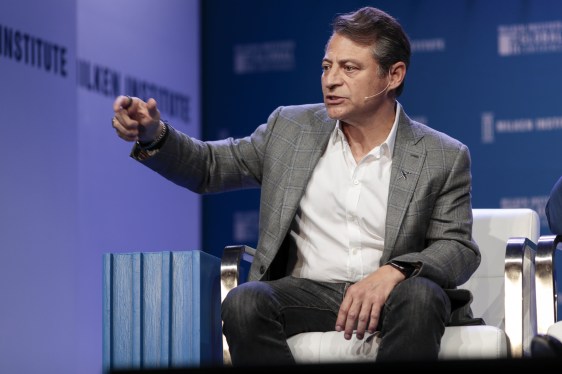Eight years ago, orthopedic surgeon Dr. William Kapp attended a medical conference that changed his professional life. After transitioning from private practice to co-founding a company that built critical care hospitals and later selling it, he developed a passion for both the medical and business sides of healthcare. He shared this with TechCrunch while reflecting on his journey.
At the annual conference hosted by renowned physician-scientist Dr. Daniel Kraft, Kapp sought to learn about new technologies that could improve patient outcomes while reducing costs. That year, Dr. Peter Diamandis, founder of the XPRIZE Foundation, and Dr. Bob Hariri, a stem-cell pioneer and co-founder of companies like Human Longevity, took the stage. Their discussion on genomics, microbiomics, and emerging technologies outside mainstream medicine left Kapp inspired.
Returning to his hometown of Naples, Florida, Kapp launched the Longevity Performance Center, focusing on early detection and health optimization. In March 2020, Diamandis and Tony Robbins, who had a stem cell startup called Fountain Therapeutics, visited the center. Their meeting led to a merger, and by October that year, the two companies became Fountain Life. Kapp remained CEO, with Diamandis and Robbins as co-founders and board members.
Today, Fountain Life’s board includes Hariri as an adviser, Todd Wanek (CEO of Ashley Furniture Industries) as an investor, and Indian business mogul B.K. Modi as another key investor.
Recently, Fountain Life exclusively revealed to TechCrunch that it raised an $18 million Series B round, led by EOS Ventures, with participation from existing board members. The company previously secured an $80 million Series A, bringing its total funding to approximately $108 million.
Longevity as a serious medical field is relatively new. When Kapp first started, the concept was still evolving. Over the past few years, research has expanded significantly. Fountain Life operates on three core principles: preventing avoidable deaths through early detection, optimizing health using scientifically validated treatments, and leveraging the latest FDA-trial regenerative therapies.
The company’s four current centers focus heavily on preventive screening, identifying illnesses and chronic conditions in their earliest, often asymptomatic stages. Tests analyze over 100 biomarkers, from liver fat to microbiome concentrations. Members receive quarterly testing and access to an AI-powered app called Zori for tracking results and medical guidance.
However, the service comes at a premium. A full membership costs $30,000 annually, while a $10,000 option covers testing and AI access but excludes ongoing medical support. Despite the cost, Kapp recalls two success stories that validated the approach. One involved a Robbins fan whose wife gifted him a membership—tests detected early-stage kidney cancer, leading to a full recovery. Another case involved hotelier Sam Nazarian, who discovered a brain aneurysm during Fountain’s screening and received successful treatment.
The new funding will support expansion. Beyond existing locations in Naples, Westchester, Orlando, and Dallas, a Houston center will open in December, with Los Angeles and Miami planned for mid-2026. Kapp aims to improve affordability by training other medical facilities in Fountain’s methodologies, hoping wider adoption will reduce costs.
Fountain Life isn’t alone in this space. Functional health expert Dr. Mark Hyman’s company, Function Health, offers a $500 annual membership for 160 blood tests, with follow-ups every three to six months. While it lacks full-body scans and direct physician access, it similarly tracks and analyzes results.

